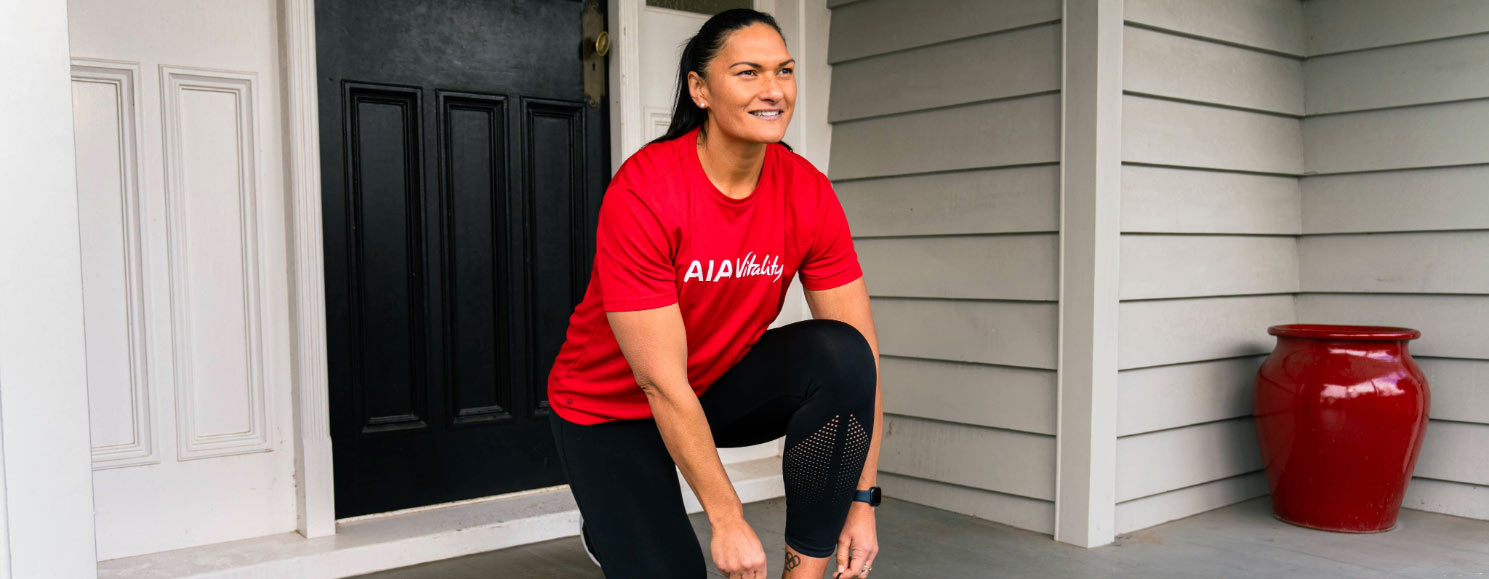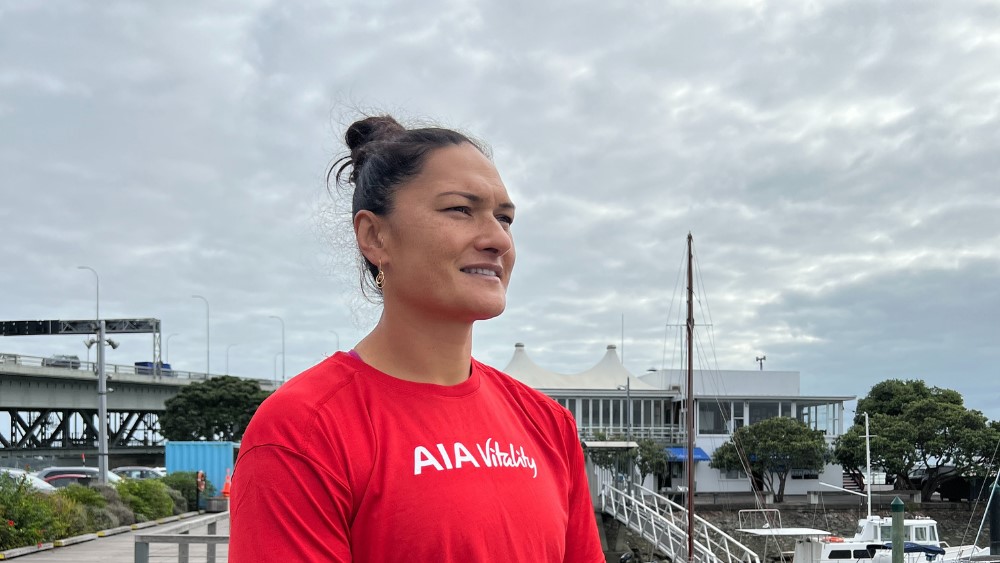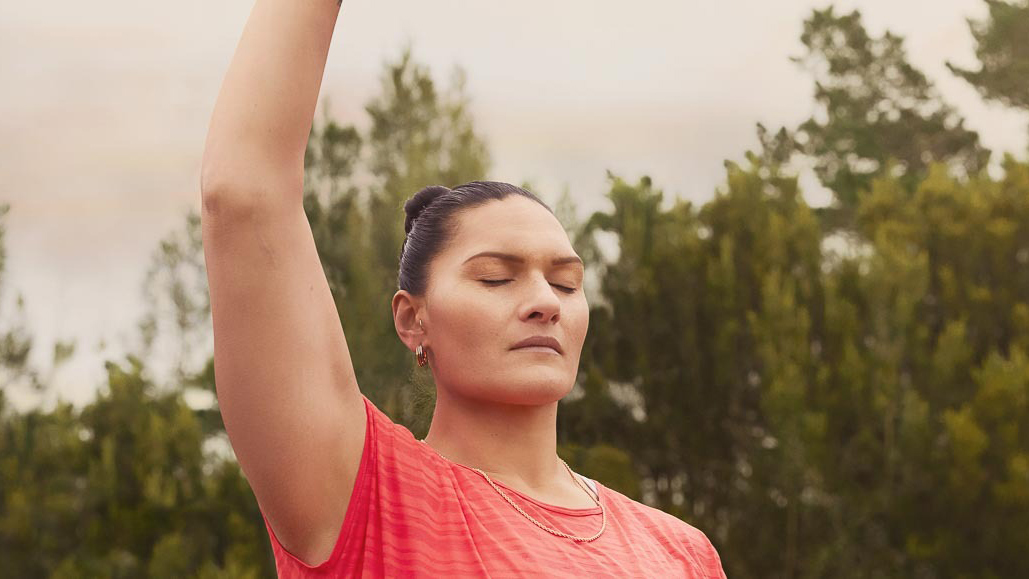Dame Valerie has recently returned from Tonga, where she led a wellbeing workshop for young female athletes. Research shows that over 43% of teenage girls who once saw themselves as ‘sporty’ disengage from sport after primary school, due to factors such as social pressures, lack of confidence, and limited role models.
We sat down with Dame Valerie to explore why the drop off rate for girls in sport is so high, and how schools, sports clubs, and families can help them stay involved. Drawing from her own experience, Dame Valerie shares insights on the importance of role models, mental wellbeing, and practical ways to support young female athletes.
The workshop
During a recent trip to Tonga, I facilitated a wellbeing course designed to give young athletes the tools they need to navigate challenges in sport and life. Over three days, we covered topics like emotional literacy, safeguarding, and the importance of creating a supportive environment for themselves and their teammates.
My aim was to empower these girls to be wellbeing champions – not just for themselves, but for others in their communities.
Creating safe spaces
One of the biggest takeaways from my time in Tonga was the importance of creating environments where young athletes, particularly girls, feel heard. When I first walked into the workshop, there was a real fear of speaking up, whether that was sharing struggles, asking for help, or even discussing their own goals. But over three days, we built that trust.
By the end of the workshop, we had created a space where these young athletes were able to offer real and authentic insights into the barriers they face. That shift – from silence to confidence – was the most rewarding part of the experience for me.
The challenges teen girls face
Keeping girls in sport is no easy task. Social media plays a big role in self-image issues, making young women question if they ‘fit’ the mould of an athlete. The pressures from friends, family, and even schools can sometimes push them away rather than encourage them to stay.
In my experience, many young girls feel they don’t have the right support network. There aren’t enough female coaches, and many girls don’t see themselves reflected in leadership positions in sport. We’ve come a long way in improving gender equity in sport, but for too long, women have been treated as second-class athletes. Whether it’s funding, recognition, or opportunities, the gap still exists.
Another challenge is the simple reality of growing up. A teenager’s body changes so much during those years, and suddenly, the shorts or uniforms that felt fine at 10 don’t feel comfortable at 15. Something as small as ill-fitting sports gear can be enough to push a young girl away from the game.
Sport changed my life
Sport saved my life. If it wasn’t for the opportunity to compete and train, I honestly don’t know where I’d be. And it wasn’t just about the competition - it was about the people who believed in me when I didn’t believe in myself.
My PE teacher, Mrs. Tugaga, saw something in me. She was the one who bought me my first pair of shoes. She went out of her way to make sure I had what I needed to pursue my talent. That small act of kindness changed the course of my life. It showed me the power of having someone in your corner, someone who believes in your potential even when you can’t see it yourself.
This is why I do what I do today. If I can help just one girl stay in sport because she feels valued and supported, then I’ve done my job. Sometimes all it takes is a little encouragement, a pair of shoes, or a coach who takes the time to understand the challenges she’s facing.
How can we keep girls in sport
Schools, sports clubs, and families all have a role to play in keeping girls engaged. First and foremost, we need more female coaches and mentors. Girls need to see women leading in sport, so they know they belong there too.
We also need to look at how we’re structuring sport in schools – are we making it fun, or are we putting too much pressure on young athletes? Are we providing comfortable, well-fitting uniforms so that girls feel good when they step onto the field or court? Are we creating an environment where all backgrounds and cultures feel represented?
For parents, the key is to support without pressure. Too often, kids feel like they must live up to their parents’ sporting legacies. The weight of expectation can be overwhelming. My own kids are young, and people always ask if they’ll follow in my footsteps. But I want them to make that decision for themselves. I’ll encourage them to play sport for their health, their wellbeing, and their happiness – but never because of outside pressure.
A call to action
We all have a role to play in making sure young girls feel they belong in sports. If we don’t actively work towards this, we’ll continue to see teenage girls walking away from sport – and we’ll lose the next generation of athletes before they even have a chance to shine.
Every girl deserves the chance to play, to grow, and to feel empowered through sport. The more we create safe, supportive environments, the more we can keep them in the game.






